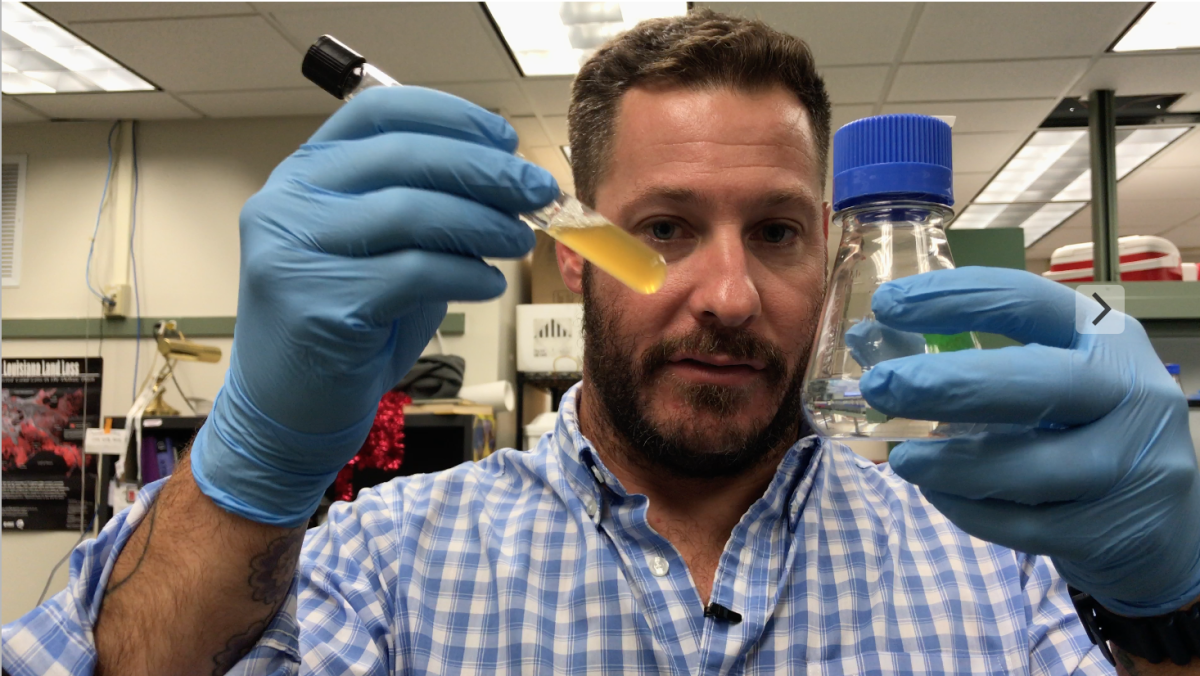The National Academies of Sciences awarded University Assistant Professor of Biological Sciences J. Cameron Thrash one of the 10 Early-Career Research Fellowships.
The early-career research fellowship supports emerging scientists as they take risks on research ideas not yet tested, pursue unique collaborations and build a network of colleagues who share their interest in preventing oil spills. These two-year fellowships are awarded to tenure-track faculty at colleges, universities and research institutions.
Thrash is a microbiologist who studies the roles of different microorganisms in the Mississippi River and the Gulf of Mexico. His research focuses on studying organisms associated with eutrophication, or the increase in nutrients in the Mississippi River responsible for the dead zone.
“We have interest in looking at organisms that respond to eutrophication,” Thrash said. “They potentially are valuable in the dead zone but also maybe for remediation of oil spill contaminated areas.”
The pre-tenure phase of a researcher’s career is a critical time, so the unrestricted funds and mentoring this fellowship provides help recipients navigate this period with independence, flexibility, and a built-in support network, according to The National Academies of Sciences, Engineering and Medicine.
Thrash has also been awarded a National Science Foundation grant for two years of funding to study the response of abundant microorganisms to changes in salinity along the Gulf of Mexico.
“If we can understand which microorganisms are using the oxygen, then we can better predict how the dead zone is going to form, how big it’s going to be, where it’s going to be and how long it’s going to last,” Thrash said.
The Louisiana Board of Regents funded a project to survey the coastal system in Louisiana where researchers took three years’ worth of samples and monitored microbial communities. They systematically isolated and cultured microorganisms from the site and developed a culture collection at the University.
Some research collaborators include University professor Nancy Rabalais, assistant professor at the University of Texas at Austin Brett Baker, assistant professor at Texas A&M University Brandi Reese and assistant professor at Florida State University Olivia Mason.
The goal of their research is to identify the functions of various microorganisms in environmental biogeochemical processes, like the carbon and nitrogen cycles. Researchers have conducted two large-scale surveys of the Mississippi River and participated in cruises to measure the size of the dead zone.
“What makes it so important is that we’re going to have a deeper understanding of microbial processes that are happening in the Gulf of Mexico,” Thrash said. “There’s just not a lot of people doing this research here. We know a lot more about the microorganisms in the Atlantic and Pacific oceans, the Southern Ocean and polar regions, but we know shockingly little about what is here in the Gulf of Mexico.”
LSU microbiologist awarded one of 10 National Academies of Science Fellowships
August 28, 2017
J Cameron Thrash
More to Discover











